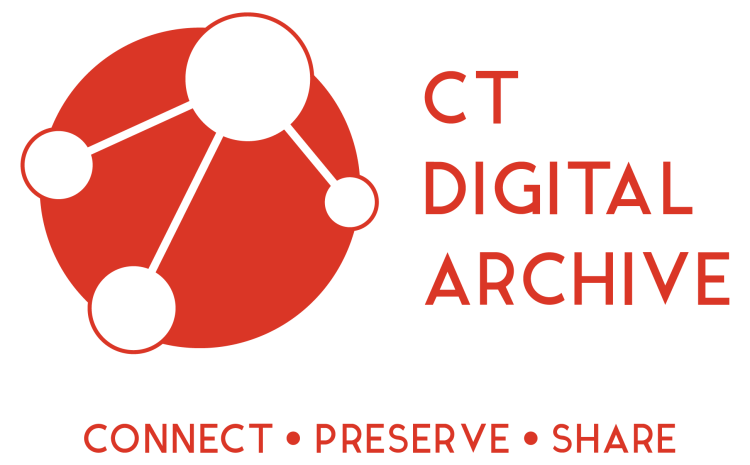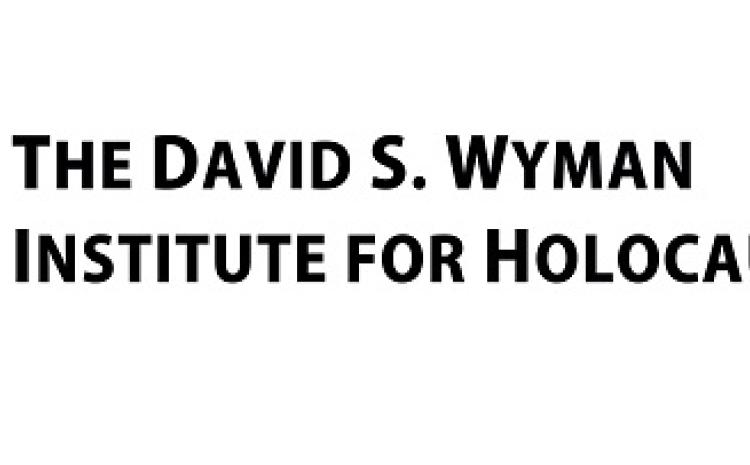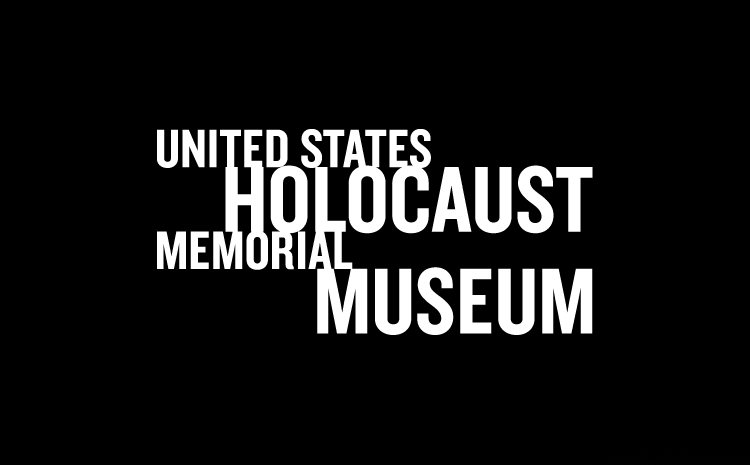The opportunity to learn from the past in order to improve the future.
In 2019, the Meriden Public Library received a large gift from Temple B’nai Abraham to create and maintain a Holocaust Collection as a designated area within the Meriden Public Library. The Temple also donated its multimedia Holocaust collection as a valued resource for research and education. This donation enables the community and generations to come to learn about the World War II Holocaust and other genocides.
To visit the collection, please see staff during library open hours.
Please also see other resources below.
Recommendations
-
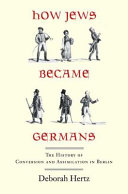
How Jews Became Germans
When the Nazis came to power and created a racial state in the 1930s, an urgent priority was to identify Jews who had converted to Christianity over the preceding centuries. With the help of church officials, a vast system of conversion and intermarriage records was created in Berlin, the country's premier Jewish city. Deborah Hertz's discovery of these records, the Judenkartei, was the first step on a long research journey that has led to this compelling book. Hertz begins the book in 1645, when the records begin, and traces generations of German Jewish families for the next two centuries.
The book analyzes the statistics and explores letters, diaries, and other materials to understand in a far more nuanced way than ever before why Jews did or did not convert to Protestantism. Focusing on the stories of individual Jews in Berlin, particularly the charismatic salon woman Rahel Levin Varnhagen and her husband, Karl, a writer and diplomat, Hertz humanizes the stories, sets them in the context of Berlin's evolving society, and connects them to the broad sweep of European history.
-
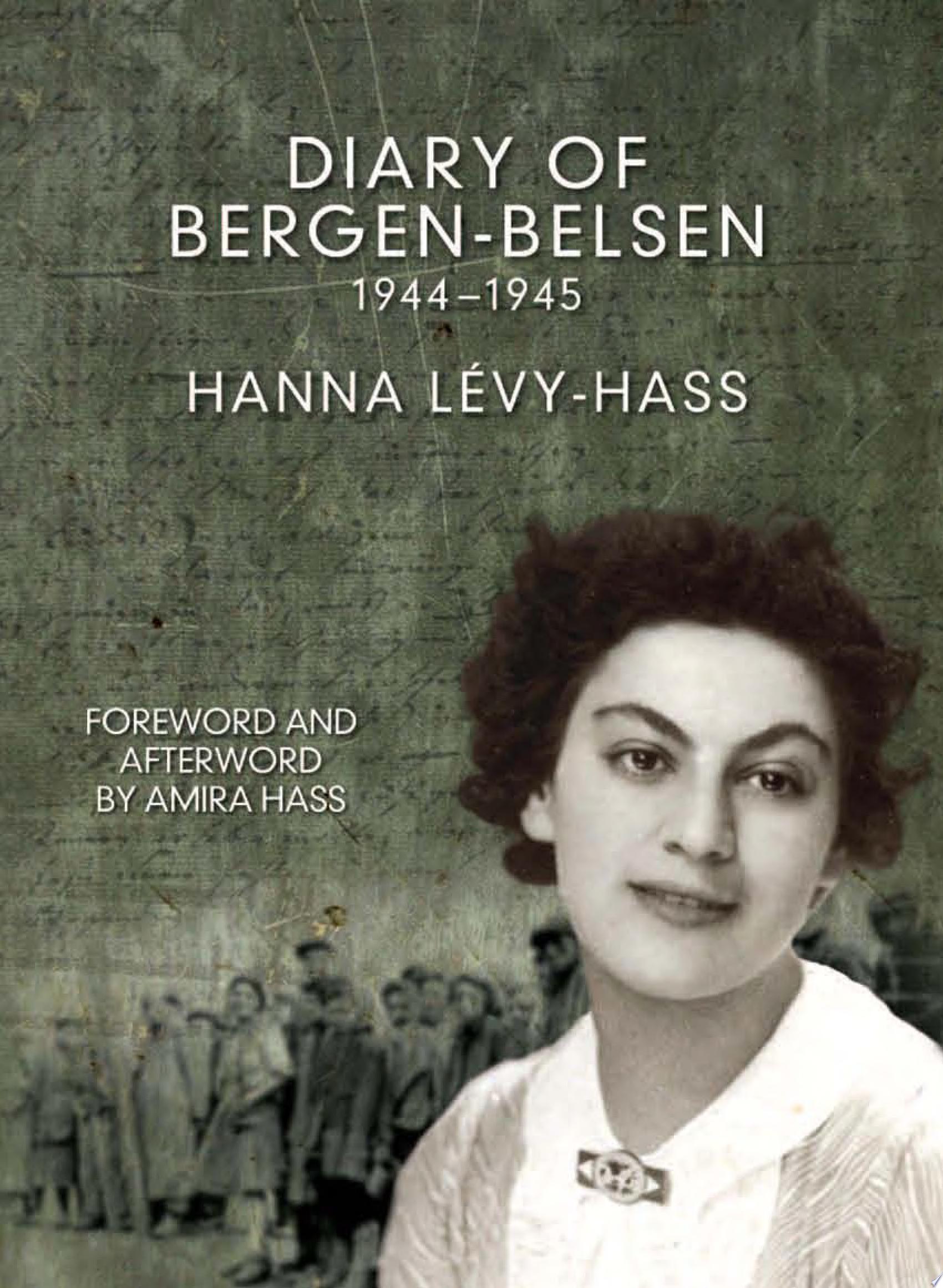
Diary of Bergen-Belsen
A unique, deeply political survivor's diary from the final year inside the Bergen-Belsen concentration camp.
Hanna Levy-Hass, a Yugoslavian Jew, emerged a defiant survivor of the Holocaust. Her observations shed new light on the lived experience of Nazi internment. Levy-Hass stands alone as the only resistance fighter to report on her own experience inside the camps, and she does so with unflinching clarity in dealing with the political and social divisions inside Bergen-Belsen.
Amira Hass, the only Israeli journalist living in and writing from within the Occupied Territories, offers a substantial introduction to her mother's work.
Praise for Hanna Levy-Hass and Diary of Bergen-Belsen
"A compelling document of historic importance which shows, with remarkable composure, that ethical thought about what it means to be human can be sustained in the most inhuman conditions. Hanna Levy-Hass teaches us how a politics of compassion and justice can rise out of the camps as the strongest answer to the horrors of the twentieth century."--Jacqueline Rose, historian, Queen Mary University of London; author, The Question of Zion
"Diary of Bergen-Belsen is a poignant testimonial whose direct and clear-eyed observations on life in Hell belong in the select company of Primo Levi and Margarete Buber-Neumann, whose recently translated Under Two Dictators is the only comparable account in English of the female experience at Bergen-Belsen. Hannah Levy-Hass was clearly a quite extraordinary woman -- brave, honest, and undiminished in her idealism and hopes: qualities that also characterize her daughter Amira, a fearless Israeli journalist who introduces the Diary with a moving account of her mother's life and death."--Tony Judt, historian; University Professor and Director of The Remarque Institute, New York University; author, Postwar: A History of Europe Since 1945
"Diary of Bergen-Belsen vividly captures the tempestuous spirits of one of the darkest places on earth during one of the darkest times in history. Hanna Levy-Hass writes with captivation of unthinkable brutality. Her careful writings have created an unforgettable and indispensable chronicle that will live on for generations. She will help us remember, and to never forget."--Edwin Black, author, IBM and the Holocaust
"No other diary carries quite the same lessons of moral courage and political urgency as Levy-Hass's does, with her repeated attempts to salvage some form of solidarity out of the abyss of depravity and selfish individualism that engulfed Belsen's inmates. This new edition includes a powerful foreword and afterword by Levy-Hass's daughter, Amira, who, without sentimentality or false analogy, links the struggles of her own present with those of her mother's past."--Jane Caplan, Professor of Modern European History, Oxford University
The history of the Holocaust is often reduced to a simple conflict between the persecutors and their victims, but it was a much more complex process. It was also the history of the struggle against the barbarism of Twentieth century: and that is the reason why this diary is so important to us."--Enzo Traverso, historian, University of Picardie, France; author, The Origins of Nazi Violence
Born in Sarajevo, Hanna Levy-Hass was an activist in the resistance to the German occupation of Yugoslavia. She was taken by the Nazis from Montenegro to the Bergen-Belsen concentration camp in 1944. Her diary has been published in many languages.
Amira Hass, the daughter of Hanna Levy-Hass, is an Israeli journalist who is best known for her columns in Ha'aretz. She is the author of Drinking the Sea at Gaza and has received many awards for her writing. -
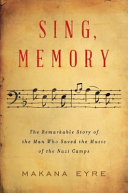
Sing, Memory
On a cold October night in 1942, SS guards at the Sachsenhausen concentration camp violently disbanded a rehearsal of a secret Jewish choir led by conductor Rosebery d'Arguto. Many in the group did not live to see morning, and those who survived the guards' reprisal were deported to Auschwitz-Birkenau just a few weeks later. Only one of its members survived the Holocaust. Yet their story survives, thanks to Aleksander Kulisiewicz. An amateur musician, he was not Jewish, but struck up an unlikely friendship with d'Arguto in Sachsenhausen. D'Arguto tasked him with a mission: to save the musical heritage of the victims of the Nazi camps.
In Sing, Memory, Makana Eyre recounts Kulisiewicz's extraordinary transformation from a Polish nationalist into a guardian of music and culture from the Nazi camps. Aided by an eidetic memory, Kulisiewicz was able to preserve for posterity not only his own songs about life at the camp, but the music and poetry of prisoners from a range of national and cultural backgrounds. They composed symphonies, organized clandestine choirs, arranged great pieces of music by illustrious composers, and gathered regularly over the course of the war to perform for one another. For many, music enabled them to resist, bear witness, and maintain their humanity in some of the most brutal conditions imaginable.
After the war, Kulisiewicz returned to Poland and assembled an archive of camp music, which he went on to perform in more than a dozen countries. He dedicated the remainder of his life to the memory of the Nazi camps. Drawing on oral history and testimony, as well as extensive archival research, Eyre tells this rich and affecting human story of musical resistance to the Nazi regime in full for the first time.
-
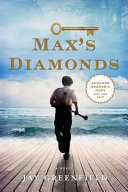
Max's Diamonds
Fiction. Jewish Studies. A stunning decades-spanning debut novel, about a man forced to confront his moral culpability, the legacy of impossible loss, and the claims of his Jewish identity. Paul Hartman, coming of age in postwar Rockaway, grows up haunted by the specter of his cousin Max, an Auschwitz survivor, and Max's mysterious cache of diamonds, which fund Paul's Harvard Law education and even sparkle in his fiancée's engagement ring. When a stranger from his past confronts him with an impossible demand, one that could destroy his law career, his marriage and his sense of self, Paul must make choices that will change his fate forever.
-
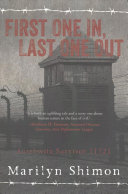
First One In, Last One Out
While growing up in New York, Marilyn Shimon often visited her uncle in California. She saw his scars, gaped at his "31321" tattoo, and listened to his horrific stories of the Holocaust. However, she could not relate to the suffering he endured or understand the significance of his accounts-until now.
In this grisly memoir, Marilyn resurrects Murray Scheinberg's stories of six hellish years in Nazi concentration camps during World War II. The Polish Jew was one of the first eight men to enter Auschwitz, as a political prisoner in 1940, and one of the last to escape Dachau.
Rejected by a publisher in the 1960s because of its incredible details, this true story, finally available to the public, will shock, horrify, and touch readers.
Abraham H. Foxman, national director emeritus at the Anti-Defamation League, says of the book: "First One In, Last One Out:Auschwitz Survivor 31321 is a harrowing tale of endurance, luck, egotism, and morality, one man's story of survival in the face of Nazi brutality and anti-Semitism. Murray Scheinberg's memoir of survival through the Nazi Holocaust symbolizes man's determination to live no matter the odds. But it also represents the degradation of the human spirit imposed on the Jews of Europe by the evil Nazi machine. It is both an uplifting tale and a sorry one about human nature in the face of evil."
"A magnificent telling of a moving and heartfelt story."
--Ira Hochman, Friendly Visitors Program/Holocaust Survivors
"I am moved to tears beyond what I can express. This is an exceptionally incredible story and the author's writing is extremely moving.The story is a testament of life and will teach future generations that good triumphs over evil."
--Ruth Baran Gerold, child of Holocaust survivors
"The author brilliantly wrote about her uncle's life throughout the Nazi regime. She successfully engages the reader in the emotions and drama of this horrific period.This is a must-read-page turner."
--Larry Klass, Retired Veteran-US Army
"It is a powerful and compelling story that should be promoted in schools and read by all."
--Faye Kilstein, child of Auschwitz survivor
-
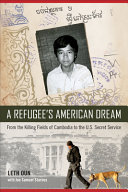
A Refugee's American Dream
"I saw many killed. I almost starved. But I escaped to refugee camps in Thailand and eventually made it to the U.S." Thus begins Leth Oun's poignant and vivid memoir. A survivor of the Cambodian Killing Fields--having spent a torturous three years, eight months, and ten days imprisoned by the Khmer Rouge--Oun thrived in America, learning English, becoming a citizen, and working as an officer in the United States Secret Service Uniformed Division.
In A Refugee's American Dream, Oun shares hard memories of Cambodia, where his father was executed, and his family enslaved in labor camps.Following the fall of the Khmer Rouge, Oun survived a year of homelessness then nearly four years in refugee camps. Arriving in America, 17 and penniless, Oun struggled, washing dishes at a Chinese restaurant for $3.15 an hour. Still, he persevered, graduating from Widener University and completing thousands of hours of training to pursue a career in the Secret Service.
While on President Obama's protection team, he returns to Cambodia after 32 years, reunites with family, and bonds with Reik, the Secret Service dog he handles. Through his most difficult moments, Oun displays truly inspiring resilience that ultimately leads to great achievements.
The authors' proceeds will go to help Cambodians in need
-
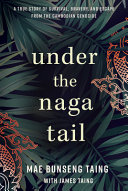
Under the Naga Tail
A courageous and poignant memoir of one young man's daring escape from Cambodia's genocidal regime
Forced from his home by the Khmer Rouge, teenager Mae Taing struggles to endure years of backbreaking work, constant starvation, and ruthless cruelty from his captors--supposed freedom fighters who turned against their own people. Mae risks torture and death to escape into the dark tropical jungles, trekking across a relentless wilderness crawling with soldiers.
When Mae is able to overcome unthinkable odds in the hopes of reuniting with his family, fate takes a cruel turn as he flees war-torn Cambodia. He becomes trapped as a refugee with thousands of others on the ancient temple mountain, Preah Vihear, a place surrounded by countless deadly landmines. Caught up in the terror once more, it is only his willpower to survive and dreams of a better country that give Mae the strength to face the dangers ahead.
This gripping and inspiring memoir, written with Mae's son, James, is not merely an incredible story of survival, but a testament to the human spirit's capacity in us all to endure and prevail in spite of great adversity. Under the Naga Tail will find its place among the most epic true stories of personal triumph. -
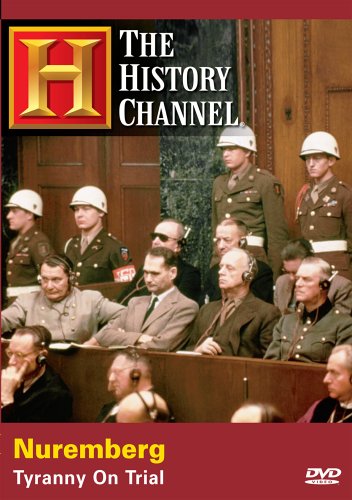
Nuremberg: tyranny on trial
DVD
The Nuremberg Trials revealed the full scope of Nazi Germany's atrocities and ended in the execution of many of the top Nazi leaders. Follow the historic trials from accusations through executions.
-
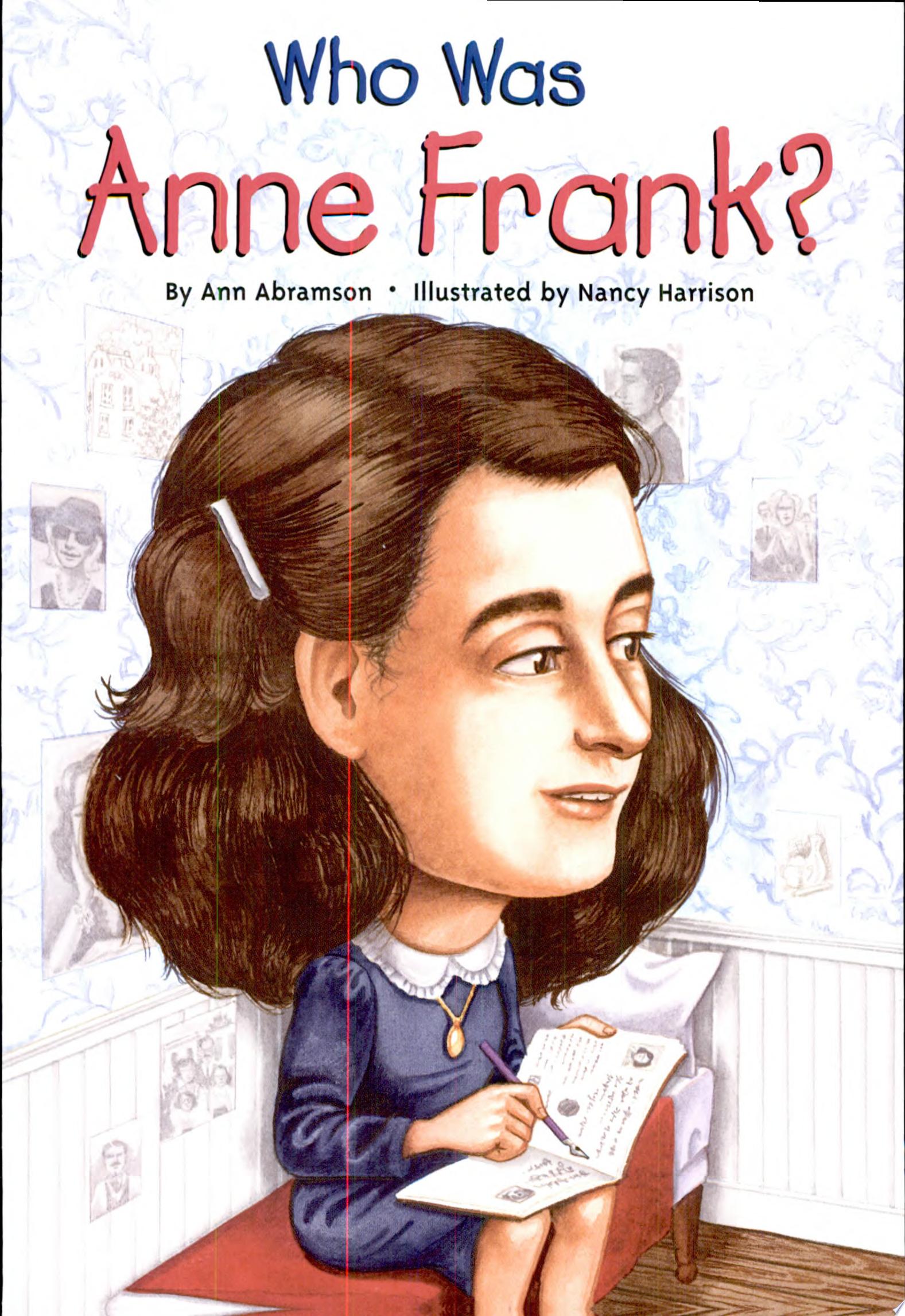
Who Was Anne Frank?
In her amazing diary, Anne Frank revealed the challenges and dreams common for any young girl. But Hitler brought her childhood to an end and forced her and her family into hiding. Who Was Anne Frank? looks closely at Anne’s life before the secret annex, what life was like in hiding, and the legacy of her diary. Black-and-white illustrations including maps and diagrams provide historical and visual reference in an easy-to-read biography written in a way that is appropriate and accessible for younger readers.
-
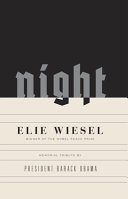
Night: A Memoir
A memorial edition of Elie Wiesel's seminal memoir of surviving the Nazi death camps, with tributes by President Obama and Samantha Power
When Elie Wiesel died in July 2016, the White House issued a memorial statement in which President Barack Obama called him "the conscience of the world." The whole of the president's eloquent tribute serves as a foreword to this memorial edition of Night. "Like millions of admirers, I first came to know Elie through his account of the horror he endured during the Holocaust simply because he was Jewish," wrote the president.
In 1986, when Wiesel received the Nobel Peace Prize, the Norwegian Nobel Committee wrote, "Elie Wiesel was rescued from the ashes of Auschwitz after storm and fire had ravaged his life. In time he realized that his life could have purpose: that he was to be a witness, the one who would pass on the account of what had happened so that the dead would not have died in vain and so the living could learn." Night, which has sold millions of copies around the world, is the very embodiment of that conviction. It is written in simple, understated language, yet it is emotionally devastating, never to be forgotten.
Born in the town of Sighet, Transylvania, Wiesel was a teenager when he and his family were deported to Auschwitz and then Buchenwald. Night is the shattering record of his memories of the death of his mother, father, and little sister, Tsipora; the death of his own innocence; and his despair as a deeply observant Jew confronting the absolute evil of man.
"Never shall I forget that night, the first night in camp, that turned my life into one long night," writes Wiesel. "Never shall I forget . . . even were I condemned to live as long as God Himself." These words are etched into the wall of the Holocaust Memorial Museum in Washington. Far more than a chronicle of the sadistic realm of the camps, Night also addresses many of the philosophical and personal questions implicit in any serious consideration of the Holocaust.
In addition to tributes from President Obama and Samantha Powers, this memorial edition of Night includes the unpublished text of a speech that Wiesel delivered before the United Nations General Assembly on the sixtieth anniversary of the liberation of Auschwitz, entitled "Will the World Ever Know." These remarks powerfully resonate with Night and with subsequent acts of genocide.
-
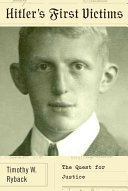
Hitler's First Victims
The remarkable story of Josef Hartinger, the German prosecutor who risked everything to bring to justice the first killers of the Holocaust and whose efforts would play a key role in the Nuremberg tribunal.
Before Germany was engulfed by Nazi dictatorship, it was a constitutional republic. And just before Dachau Concentration Camp became a site of Nazi genocide, it was a state detention center for political prisoners, subject to police authority and due process. The camp began its irrevocable transformation from one to the other following the execution of four Jewish detainees in the spring of 1933. Timothy W. Ryback's gripping and poignant historical narrative focuses on those first victims of the Holocaust and the investigation that followed, as Hartinger sought to expose these earliest cases of state-condoned atrocity.
In documenting the circumstances surrounding these first murders and Hartinger's unrelenting pursuit of the SS perpetrators, Ryback indelibly evokes a society on the brink--one in which civil liberties are sacrificed to national security, in which citizens increasingly turn a blind eye to injustice, in which the bedrock of judicial accountability chillingly dissolves into the martial caprice of the Third Reich.
We see Hartinger, holding on to his unassailable sense of justice, doggedly resisting the rising dominance of Nazism. His efforts were only a temporary roadblock to the Nazis, but Ryback makes clear that Hartinger struck a lasting blow for justice. The forensic evidence and testimony gathered by Hartinger provided crucial evidence in the postwar trials.
Hitler's First Victims exposes the chaos and fragility of the Nazis' early grip on power and dramatically suggests how different history could have been had other Germans followed Hartinger's example of personal courage in that time of collective human failure. -
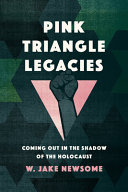
Pink Triangle Legacies
Pink Triangle Legacies traces the transformation of the pink triangle, from a Nazi concentration camp badge and emblem of discrimination, into a widespread, recognizable symbol of queer activism, pride, and community. W. Jake Newsome provides an overview of the Nazis' targeted violence against LGBTQ+ people and details queer survivors' fraught and ongoing fight for the acknowledgement, compensation, and memorialization of LGBTQ+ victims. Within this context, a new generation of queer activists used the pink triangle--a reminder of Germany's fascist past--as the visual marker of gay liberation, seeking to end the practice of second-class citizenship by asserting they had the right to express their queer identity openly.
The reclamation of the pink triangle occurred first in West Germany, but soon activists in the USA adopted this chapter of German history as their own. As gay activists on opposite sides of the Atlantic grafted pink triangle memories into new contexts, they connected two national communities and helped form the basis of a shared gay history, indeed a new gay identity, that transcended national borders.
Pink Triangle Legacies illustrates the dangerous consequences of historical silencing and how the incorporation of hidden histories into the mainstream understanding of the past can contribute to a more inclusive experience of belonging in the present. But there can be no justice without acknowledging and remembering the injustice. As Newsome demonstrates, if a marginalized community wants a history that liberates them from the confines of silence, they must often write it themselves.
-
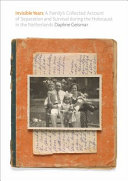
Invisible Years
The Holocaust memoir of a Dutch family who evaded arrest and deportation by the Nazis. Told through letters, diaries, and interviews, and illustrated with photographs throughout, this detailed account brings a new perspective to one of history's most horrific chapters.
During the Second World War, as the Nazis tightened their grip on the Netherlands, the Jewish population was slowly restricted from public life--everything from owning a bike to having a job was forbidden. Sensing the murderous consequences of deportation, Daphne Geismar's family--her parents, grandparents, aunts, and uncles--decided to separate and go into hiding. Parents and children were torn apart, living for years in isolation behind a church organ, below floorboards, or even in plain sight.
While timelines and notes provide context, we hear the voices of young Mirjam, sent by her parents to live with a family of strangers; Judith whose braids were cut to make her look less Jewish; Nathan, taken in and given false papers by a Dutch soldier. Ordinary people whose collective story is one of resilience and resistance, survival and compassion.
"This is an important book because many people don't know what took place in the Netherlands during the Nazi occupation....[The] fascinating story also highlights the courage of the rescuers involved in that dangerous undertaking. It is a story that must be told to inspire others never to give up even when it seems all is lost."--Mordecai Paldiel, Former Director, Righteous Among Nations, Yad Vashem
For readers of history and memoirs, this family's story, Invisible Years, challenges readers to follow this example of resistance to inhumanity.
